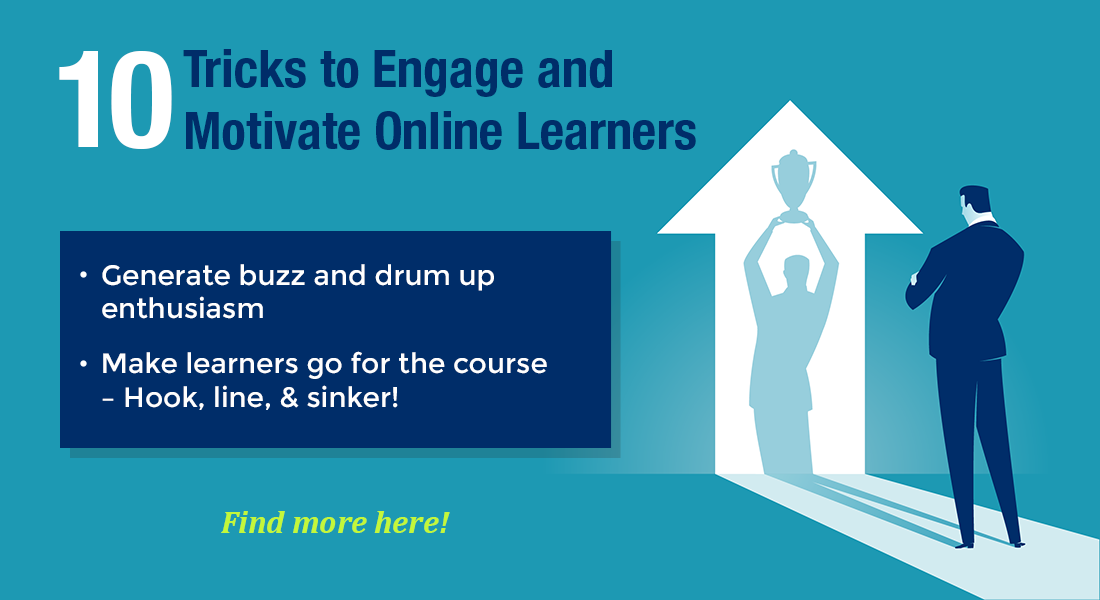Learn. Revise. Excel! Online Learning for Knowledge Reinforcement

This is the era of information. Thanks to the universal access to high-speed Internet, your learners are flooded with information on many devices. Emails, social media posts, e-books, articles, videos, audio books, and many more types of information are always jostling for space in the memory of your employees. On top of that, corporate employees are loaded with many nitty-gritties related to their work. Your online courses are going to have to fight for space in your learners’ brain in such a crowded landscape.
Learners might try their best to give their 100% to an e-learning module, but may not be able to do so. Pressures of work, interruptions of colleagues, meeting with the boss can all divert the attention of your employee, reducing the efficiency of their knowledge grasping abilities. More so, training imparted today won’t come into actual use till a considerable duration of time, further straining the life of the knowledge.
That’s why conveying any topic just once is not enough for ensuring effective transfer and retention of knowledge. As responsible training managers, you should always plan enough provisions to reinforce the already imparted training. Let’s see some of the leading online learning methods that can be used to reinforce knowledge among your learners:
1. Microlearning
Microlearning modules are essentially bite-sized learning modules that convey one topic comprehensively. Such micro modules are not only effective as standalone instruments of transferring information but also gel well with a full-fledged e-learning course. This makes such modules ideal for reinforcing the topics that are conveyed in your primary e-learning course or in a classroom session.
Owing to the short duration of micro-courses, employees can use them to quickly brush their knowledge of any topic. The learning points in each of your topics can be easily covered by 1 micro module. Always ensure that you reserve some budget for creating microlearning modules from your e-learning vendor.
2. Mobile Learning
There is a good amount of chance that subject/topic revisions will happen on the fly. No one realizes that they are missing critical information until it is absolutely required. However, if your e-learning course is just restricted to computers and laptops, then it might be too late to deliver information to users when they need it directly.
To avoid this, you need to make sure that your e-learning courses are easily accessible on mobile devices so that learners can revise their topics on the go. Just developing responsive e-learning courses is not enough to do this, you also need to ensure that your LMS is mobile compatible and keep the course size low so that they load effortlessly on a slow mobile network in remote locations.
3. Short Games
Games are one of the most effective, short methods to convey a wide range of topics, without giving learners any additional stress usually associated with learning. This makes game-based content very useful in reinforcing topics among your learners. Learners only need to play such games in order to get well versed with the subject in question – a well-designed game can be used to help revise compliance laws or the functioning of your ERP system. The best part is that no learner will shy away from playing such games, as it is a fun activity, thereby assuring maximum participation and revision rates.
4. Quick Quizzes
Quizzes can act as much more than just tools of assessments, if conducted at the right time. The chances of learners acing a test just after they have completed a training is pretty high, but the same learners might draw a blank when given the same quiz sometime after the completion of a course. Giving learners a well-timed quiz can create a reverse psychological effect. When they see they need help or need to refresh their knowledge, the chances of them revisiting the course and polishing their knowledge further are more.
5. Comprehensive Videos
Videos are great tools to convey any topic in a short time. Using attractive visuals, powerful voiceovers and captivating animations, videos can breakdown any complex topic in the most digestible format. This makes videos perfect to impart revisions on any topic. Release a short video sometime after the full-fledged e-learning course. This will give your learners the right push just when they are about to forget the learning. The fact that watching videos is an enjoyable activity also helps your revision purpose a great deal.
The effectiveness of your e-learning course is only as good as the knowledge your learners retain at the time of actual use. If you are taking so much effort to create the right course, then go a step ahead and create a good reinforcement strategy as well.





